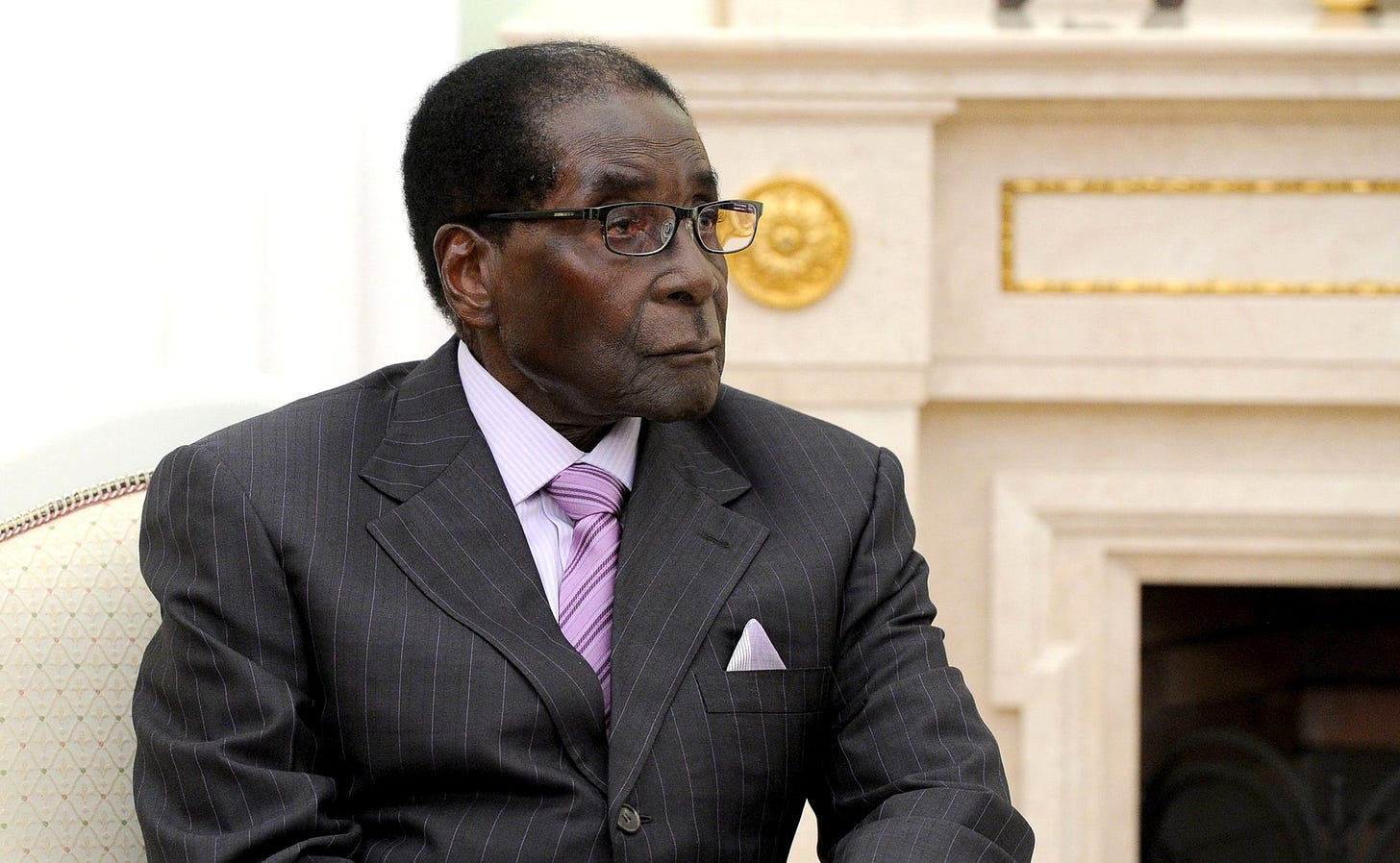Don’t Get Too Excited About Mugabe's Ousting Just Yet
Written by: Neo Mkwane
On the 14th of November 2017, components of the Zimbabwean military assembled around Harare and seized control of the Zimbabwe Broadcasting Corporation (ZBC) and other strategic areas of the city. This came after a controversial move by the 93 year old President Robert Mugabe to oust his Vice President, Emmerson Mnangagwa.
Following these developments, I took interest and opted to share my opinion on the various areas which I think should be brought to the fore as this ‘crisis’ unfolds.
What We Know
The seizure of the ZBC was shortly followed by a live statement where Defence Force General Constantino Chiwenga lambasted those who were responsible for the dismissals of government officials in the ruling ZANU-PF. From this point, a split in the ruling party was evident and signs of a coup were very much palpable.
It is believed that the current standoff is between the youth faction of ZANU-PF, which is back the President’s wife, Grace Mugabe, against the former liberation fighters whom are loyal to Mnangagwa, the Vice President, who was relieved of his duties last week.
The Zimbabwe crisis, as it has come to be known, has been largely reported as coup d'etat by mainstream media, which Chiwenga and other prominent figures have come to deny. Their denial is informed by the fact that the frontrunner to replace Mugabe in the interim is Emmerson Mnangagwa – who remains a member and prominent figure in the governing ZANU-PF party.
The debate on whether or not the events in Zimbabwe should be considered a coup is perhaps one which may require a sequel to this article. The immediate intention for this piece is to highlight the fact that Zimbabwe may not be on a path for change as so many seem to anticipate, with Mugabe preparing himself to vacate office.
Toothless AU & SADC!
The role of the African Union (AU) and the Southern African Development Community (SADC) were brought into the spotlight once again. The continental and regional bodies have been for a long time seen as expensive ‘bark without bite’ platforms with little to show for their initiatives in maintaining peace, law and order on the continent.
In this regard, it is perhaps a welcome relief that no one volunteered to hold their breath on the expectation that SADC or the AU would pull through for the situation in Zimbabwe. Both institutions have thus far achieved nothing but maintain their reputations as money-guzzling and time-wasting exclusive clubs for the corrupt.
Perhaps it would be appropriate for SADC to learn a thing or two from its peer, the Economic Community of West African States (ECOWAS). When the then-Gambian President Yahya Jammeh refused to vacate office following an election loss, ECOWAS threatened to take military action. This threat was far from being a bluff, as a large battalion of soldiers were deployed to the boarder of The Gambia. This display of force by the West African regional body instilled a sense of hope for the future of peace-building and democratic consolidation in Africa. With events unfolding in Zimbabwe, it would appear that the hope could possibly be short-lived.
Mugabe 2.0
The failure of SADC and perhaps the AU leads to the crux of this piece where I warn against unwarranted excitement over the ousting of Mugabe. In this part I aim to, albeit briefly, provide several reasons why the end of Mugabe’s era shouldn’t be any cause for celebration.
It is perhaps appropriate to begin by asking, who is Emmerson Mnangagwa? The 75 year old Mnangagwa was a leader during the Zimbabwean liberation war. After Zimbabwe’s independence in 1980, Mnangagwa held a series of senior cabinet positions under Mugabe, including Minister of State Security during the Gukurahundi civil war, in which thousands of civilians were killed. Mnangagwa refused to take any responsibility and, in a cowardly manner, blamed the Army for the massacres. He continued to hold senior cabinet positions.
Mnangagwa was an instrumental figure in Mugabe’s dictatorial reign. His role in the suppression of human rights and disregard for the Constitution of Zimbabwe is palpable. In fact, I would argue that he is Mugabe 2.0. Judging from this, it would appear that a Mnangagwa takeover would maintain the status quo.
Many analysts and commentators have often misdiagnosed the Zimbabwean problem as purely Robert Mugabe. I believe that this isn’t only a simplistic analysis but also a reductionist one.
In explicating the problem of Zimbabwe, one should always look to other African states and learn of the role of liberation movements in facilitating crimes against humanity, corruption and malevolence against their own people. Zimbabwe is by no means an exception. ZANU-PF is the cause, while Robert Mugabe is simply the symptom, of Zimbabwe’s political and socioeconomic woes.
With the ‘coup’ seemingly finding its conclusion, the manner through which it was conducted also falls into question.
Rather than the conventional violence and drama associated with a coup d'état, the Zimbabwean military appear to have invited themselves to high tea with the President to effectively persuade him into stepping down from power. What should also be noted, perhaps boldly, is the fact that this supposed coup involves a ZANU-PF president, an ousted ZANU-PF vice president, and a ZANU-PF-controlled military, which might explain the absence of a violent takeover typically associated with a coup. This reinforces the point that Mugabe’s ousting doesn’t amount to a post 37 yearlong sigh of relief.
Neo Mkwane is a civil servant.




